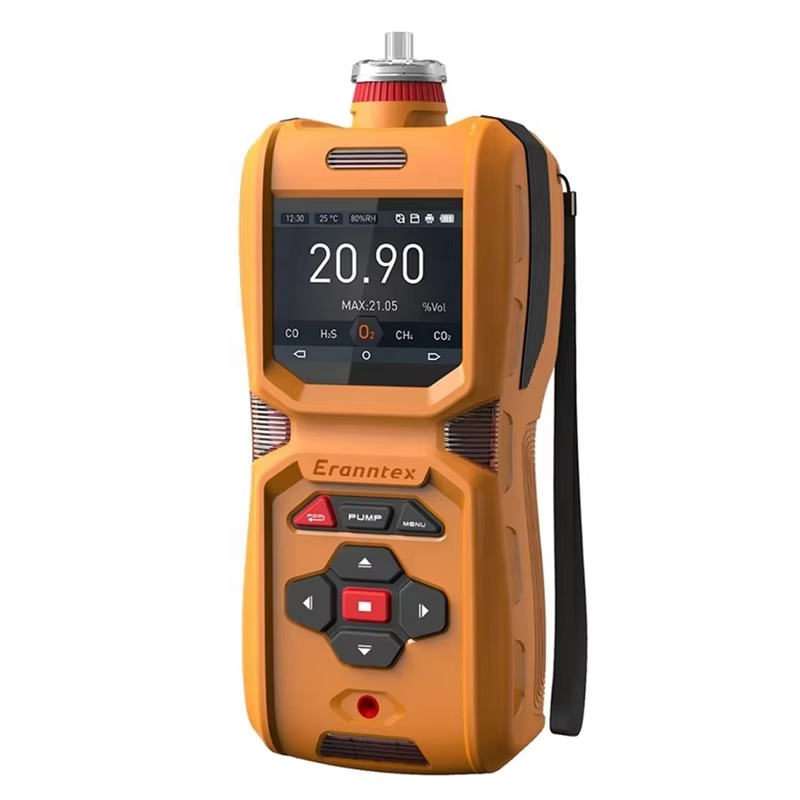Due to its unique geographical conditions (high temperatures, arid climate), economic structure (oil-dominated industry), and rapid urbanization, gas sensors play a critical role in Saudi Arabia across multiple sectors, including industrial safety, environmental monitoring, public health, and smart city development.
1. Key Application Areas
(1) Oil & Gas Industry
As one of the world’s largest oil producers, Saudi Arabia relies heavily on gas sensors for extraction, refining, and transportation:
- Detection of flammable gases (methane, propane, etc.) – Prevents explosions caused by leaks or blowouts.
- Monitoring toxic gases (H₂S, CO, SO₂) – Protects workers from lethal exposure (e.g., hydrogen sulfide poisoning).
- VOCs (Volatile Organic Compounds) monitoring – Reduces environmental pollution from petrochemical operations.
(2) Environmental Monitoring & Air Quality Management
Some Saudi cities face dust storms and industrial pollution, making gas sensors essential for:
- PM2.5/PM10 and hazardous gas (NO₂, O₃, CO) monitoring – Real-time air quality alerts in cities like Riyadh and Jeddah.
- Dust particle detection during sandstorms – Early warnings to minimize public health risks.
(3) Smart Cities & Building Safety
Under Saudi’s Vision 2030, gas sensors support smart infrastructure:
- Smart buildings (malls, hotels, metros) – CO₂ monitoring for HVAC optimization and gas leak detection (e.g., kitchens, boiler rooms).
- NEOM and future city projects – IoT-integrated real-time environmental monitoring.
(4) Healthcare & Public Health
- Hospitals & laboratories – Tracks O₂, anesthetic gases (e.g., N₂O), and disinfectants (e.g., ozone O₃) for safety compliance.
- Post-COVID-19 – CO₂ sensors assess ventilation efficiency to reduce viral transmission risks.
(5) Transportation & Tunnel Safety
- Road tunnels & underground parking – Monitors CO/NO₂ levels to prevent toxic vehicle exhaust buildup.
- Ports & logistics warehouses – Detects refrigerant leaks (e.g., ammonia NH₃) in cold storage.
2. Critical Functions of Gas Sensors
- Accident Prevention – Real-time detection of explosive/toxic gases triggers alarms or automatic shutdowns.
- Regulatory Compliance – Helps industries adhere to environmental standards (e.g., ISO 14001).
- Energy Efficiency – Optimizes ventilation in smart buildings, reducing energy waste.
- Data-Driven Decision Making – Long-term monitoring supports pollution source analysis and emission policies.
3. Saudi-Specific Requirements & Challenges
- High-Temperature Resistance – Desert climates demand sensors that withstand >50°C and dust.
- Explosion-Proof Certification – Oil/gas facilities require ATEX/IECEx-certified sensors.
- Low Maintenance Needs – Remote areas (e.g., oil fields) need durable, long-lasting sensors.
- Localization Policies – Vision 2030 promotes local tech partnerships for foreign suppliers.
4. Common Gas Sensor Types & Use Cases
| Sensor Type | Target Gases | Applications |
|---|---|---|
| Electrochemical | CO, H₂S, SO₂ | Oil refineries, wastewater plants |
| NDIR (Infrared) | CO₂, CH₄ | Smart buildings, greenhouses |
| Semiconductor | VOCs, alcohol | Industrial leak detection |
| Laser Scattering | PM2.5, dust | Urban air quality stations |
5. Future Trends
- IoT Integration – 5G enables real-time data transmission to central platforms.
- AI Analytics – Predictive maintenance (e.g., pre-leakage warnings).
- Green Energy Shift – Hydrogen (H₂) economy growth will drive demand for H₂ leak detection.
Conclusion
In Saudi Arabia, gas sensors are vital for industrial safety, environmental protection, and smart city initiatives. As Vision 2030 advances, their applications in renewable energy and digital transformation will expand, supporting the Kingdom’s economic diversification.
Complete set of servers and software wireless module, supports RS485 GPRS /4g/WIFI/LORA/LORAWAN
For more gas sensor information,
please contact Honde Technology Co., LTD.
Email: info@hondetech.com
Company website: www.hondetechco.com
Tel: +86-15210548582
Post time: Aug-08-2025


